When we talk about conserving water, we must keep in mind that water is actually a finite resource. All the water in the world is part of a cycle; new water is not created. This is why reclaimed water is an important part of our community’s sustainable use commitment.
Reclaimed water is the clean water produced from the advanced treatment of wastewater at our wastewater treatment plant. It is used for non-drinking purposes, such as flushing toilets, irrigating fields and for cooling towers.
The Reclaimed Water System
- Enables OWASA to meet non-potable water needs, freeing up the community’s drinking water supply in a cost-effective manner
- Lowers the risk of a water shortage in future droughts
- Defers or eliminates the need for costly water supply or treatment facilities.
The reclaimed water system allows us to further clean the already highly-treated wastewater with a light dose of chlorine following its UV disinfection. The system also includes a storage tank and pumping station at our Mason Farm Wastewater Treatment Plant, which is used to pump the reclaimed water to users through about five miles of special pipes.
It can meet peak demand of 3 million gallons per day (mgd), and it was constructed to allow cost-effective expansion to about 5 mgd. We anticipate that the reclaimed water system can meet projected demand in the foreseeable future; to put that claim in context, reclaimed water demand averages 0.66 mgd, so there’s still plenty of room to expand.
The cost to operate and maintain the system is paid solely by reclaimed water customers: the University of North Carolina at Chapel Hill, which uses the lion’s share, and St. Thomas More School, which began using reclaimed to irrigate an athletic field in the spring of 2011.

History
Following the record drought in the early 2000s, OWASA and the University partnered to enable use of reclaimed water instead of potable water to meet certain non-drinking water demands on campus and at the University hospital. The University paid the entire cost to build the system, excluding a $1.6 million grant from the NC Clean Water Management Trust Fund to pay for engineering design and permitting costs, and a $625,500 grant from the US Environmental Protection Agency to help pay for construction of the system. Its value is about $14 million. The capital improvements of the reclaimed water system were dedicated to OWASA for operation and maintenance.
The reclaimed water system began operation in April 2009. The University and UNC Hospitals now use reclaimed water at all of their central campus chiller plant cooling towers instead of drinking water.
Bulk Fill Program
Reclaimed water is available at no charge at the wastewater treatment plant for anyone who brings tanks which hold at least 50 gallons and trains in the use of reclaimed water for irrigation and other allowable non-drinking purposes. For more information, please contact us at (919) 537-4350 or info@owasa.org.



